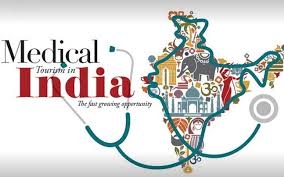
Despite the recent progress made by Artificial Intelligence (AI) in healthcare, there are still several challenges to overcome. It is likely to be the healthcare industry where AI can truly have an impact benefitting patients as well as doctors and redefine the entire healthcare delivery system, writes Mangesh Baxi, VP-Marketing of Interface Infosoft Solutions, an IT company that provides software solutions to various industries, including healthcare.
Creative destruction
An Austrian economist Joseph Schumpeter noted in 1940s that businesses which fail to add value to existing business process shall be destroyed. He called this phenomenon Creative destruction. While his prediction has generally come true; (Nokia, Kodak, Compaq) have faced this. The health care has been artificially shielded from that business model.

Only a fraction of what physicians do is based on solid evidence from Grade-A randomized, controlled trials; the rest is based instead on weak or no evidence and on subjective judgment. Most physicians work in virtually data free environment, devoid of feedback on correctness of their practice.
They may not probably know about quality, accuracy and result of their diagnosis and treatment decisions. Also, there is no data indicating that they should change the course of their current practice.
As, we have access to humongous amount of data from disparate sources. Possibly, medical informatics and artificial intelligence may change the perspective of physicians towards AI.

Moreover, the term artificial intelligence in healthcare is highly misunderstood. AI (Artificial Intelligence) is not about reproducing intelligence, but it is use of algorithms to find patterns, similarities and features from large data sets.
Integration of AI in Healthcare
We will try to chart a roadmap for implementation of AI in healthcare. Three milestones of artificial intelligence:
1. AI as in Augmented intelligence: It is the lowest end of the spectrum. It automates the basic tasks in care-giving through work-flows. The work-flows can be triggered by alarms, other workflows or by the care-givers.
2. AI as in Assisted intelligence: The physicians shall make more informed and effective decisions based on circumstances. The Assisted intelligence tool shall have advanced algorithms to train the artificial neural networks to give treatment options to physicians. IBMs Watson for e.g. provides suggestions for treatment plans and every step is linked to supporting evidence. It is left to the physician to take an appropriate decision. For Assisted intelligence , it can make a significant impact, if integrated into clinicians workflow.
3. AI as in Automated intelligence: In this, the doctor is no longer in loop and the control is handed over to the machine (as in driver-less cars). This situation is very risky and in most of the cases for patient-care the solutions are not binary. The solution is often ambiguous requiring discretion and judgment from the clinicians.
Key Challenges
AI in health care has still long way to go and the present situation has few major challenges:
1. Today, health information is available in various formats like EMRs, images, lab results, genome history, health devices, websites, research papers etc. The data needs to be standardized across the platforms. It shall improve its accessibility and use. Moreover, the standards should be open for better collaboration.
2. For developing neural learning algorithms, there is a need of quality large data sets. It must be both representative as well as reflect diversity. This will lead to development of more effective algorithms.
3. Validation of neural learning outcomes has to be thorough. The validation has to be across geographies and races, to get reliable outcomes which are comparable if not better than human intervention.
4. Earlier computers were bad at understanding English. Although, AI handles it with its NLP (Natural Language Processing) algorithms, but challenges are still there. This has a potential for medical errors.
5. Experience has shown that AI is capable of handling structured data like lab test values, but when it comes to unstructured data like radiography images they are less savvy as it requires inferences and a certain understanding of context.
Consequently, we all wish to make sense of the world around us. So far, the data provided was fairly limited and our natural intelligence was good enough to figure things out. But, the world of big data is so huge that we will need Artificial intelligence to keep a track of it.
Although, the state of real AI has not been much explored, it may come into picture in the near future in the healthcare ecosystem.
Disclaimer: The views expressed in this article are those of the authors and do not necessarily reflect the official position of Elets Technomedia Pvt Ltd.
Be a part of Elets Collaborative Initiatives. Join Us for Upcoming Events and explore business opportunities. Like us on Facebook , connect with us on LinkedIn and follow us on Twitter , Instagram.












